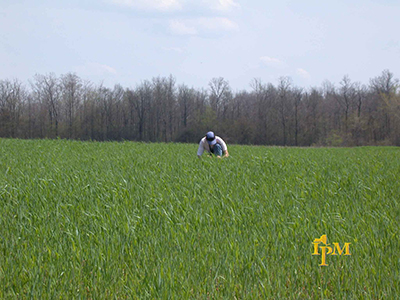But hey, this one’s a big deal with broad implications. Meeting Cornell University’s high standards for extension outreach is all-important. Extension educators are Cornell’s front line, bringing timely, quality information to that ever-changing landscape called farming. Our weekly conference call brings seasoned experts and newbies together, each one with their eyes on the ground, sharing information grounded in years of observation and experience.
What does the group learn from each other? Crane fly damage to corn and alfalfa. The first corn rootworm Bt failure in NY. Western bean cutworm numbers are still rising — this new arrival could pose problems soon.

These observations can save growers money. Take this case one participant shared: “In our area, the weather while wheat flowered in our area wasn’t supportive of fusarium blight. But when Mike mentioned that growers had tested their wheat and found significant levels, I immediately called the six major growers here. They tested their wheat and some found significant levels. Testing saved them an expensive trip to the mill — and refusal.”
In other words, super-sized servings at the smorgasbord of cooperative problem-solving. Talk about effective and on-the-cheap: these educators are in touch with thousands of growers. And their observations provide an enormous multiplier effect when posted in our Weekly Field Crops Pest Report.
Stay tuned for our first 2014 edition of the Weekly Field Crops Pest Report, coming up the last week of April.
Author: Keith Waldron, Livestock and Field Crops IPM Coordinator, NYS IPM.